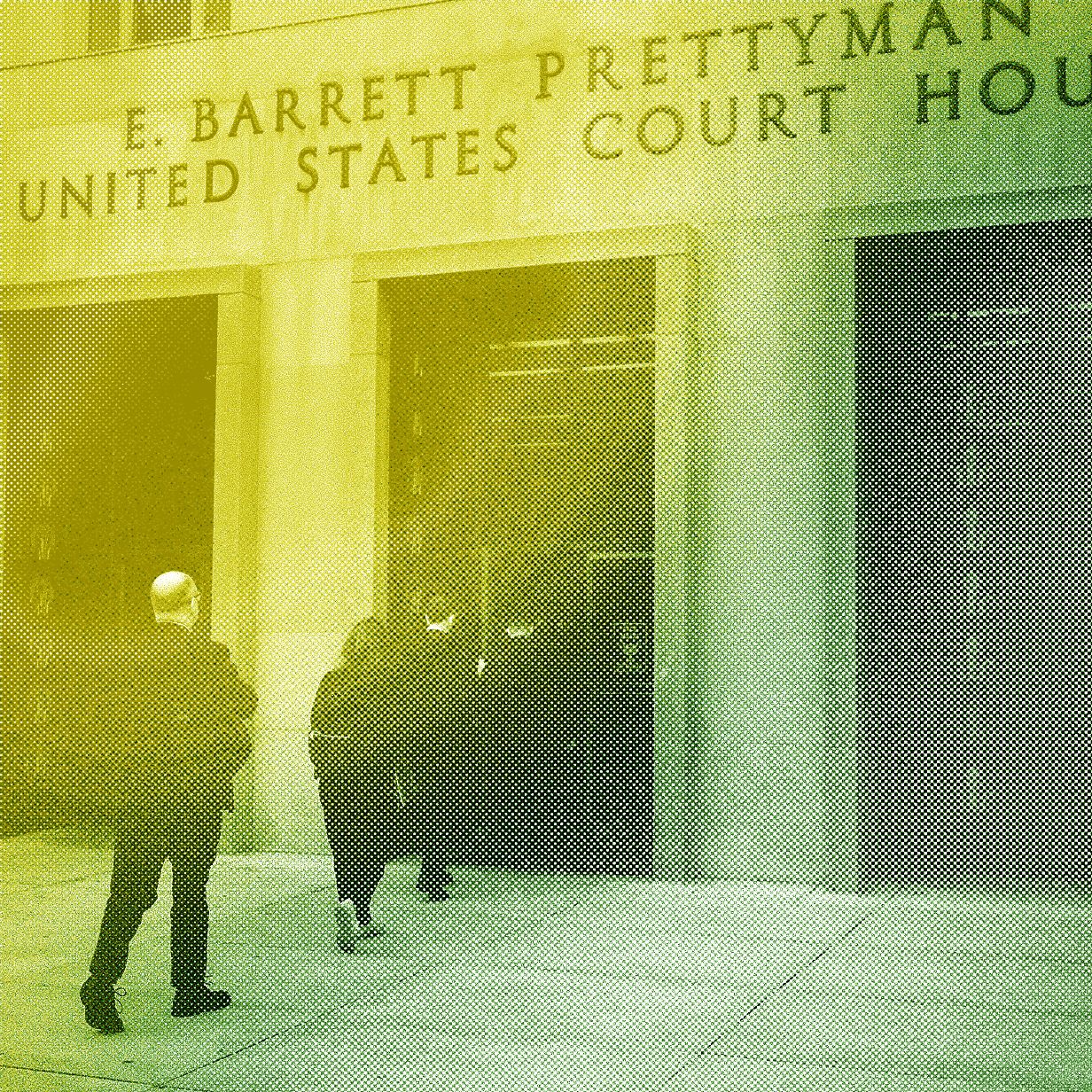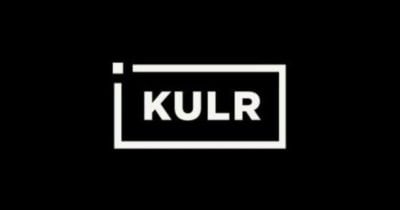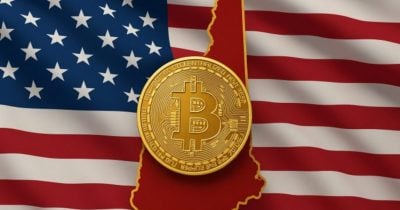The trial between the US Federal Trade Commission and Meta began this week—and the future of the company is at stake. The FTC wants Meta to sell off two prized assets, Instagram and WhatsApp, arguing that it acquired them illegally to suppress competition. Today on the show, senior writer Paresh Dave joins host Zoë Schiffer to discuss what we know right now about the government’s case—and what we learned when Mark Zuckerberg took the stand Monday.
Articles mentioned in this episode:
FTC v Meta Trial: The Future of Instagram and WhatsApp Is at Stake, by Paresh Dave
You can follow Zoë Schiffer on Bluesky at @zoeschiffer and Paresh Dave on Bluesky at @peard33. Write to us at uncannyvalley@wired.com.
How to Listen
You can always listen to this week’s podcast through the audio player on this page, but if you want to subscribe for free to get every episode, here’s how:
If you’re on an iPhone or iPad, open the app called Podcasts, or just tap this link. You can also download an app like Overcast or Pocket Casts and search for “Uncanny Valley.” We’re on Spotify too.
Transcript
Note: This is an automated transcript, which may contain errors.
Zoë Schiffer: Welcome to WIRED’s Uncanny Valley. I’m WIRED’s director of business and industry, Zoë Schiffer. Today on the show, we’re talking about the FTC versus Meta trial. The US Federal Trade Commission is alleging that Meta illegally acquired Instagram and WhatsApp in an effort to suppress competition, and it wants to force Meta to spin off those assets into separate entities. Yesterday, Mark Zuckerberg took the stand to defend his company. We’re going to get into it today. I’m joined by Paresh Dave, senior writer at WIRED, to talk about the trial. Paresh, welcome to Uncanny Valley.
Paresh Dave: Hey. Thanks, Zoë.
Zoë Schiffer: Paresh, before we get started, what’s the big story here?
Paresh Dave: The FTC is trying to get Facebook to sell off WhatsApp and Instagram. That’s huge.
Zoë Schiffer: That’s a big deal. Let’s start with what the FTC is actually arguing here, because this is something you and I have talked about in recent days. What’s the theory of the case?
Paresh Dave: It’s a couple of things. One, that Facebook has a long-standing monopoly on providing what’s known in the FTC’s parlance as personal social networking services in the US. We all know Facebook is a social media platform, but what kind of social media platform is it? In the FTC’s view, it competes with Snapchat and this little-known thing called MiWi that are about connecting with friends and family. In the FTC’s argument, TikTok, YouTube, all these other social media services we know of are not competitors to Facebook because those are about watching creators, not really about connecting with family and friends. One, the FTC has to establish that Facebook has this monopoly on personal social networking services, and the judge has to go along with that being the right market here. And then two, the argument is that Facebook made these acquisitions of Instagram and WhatsApp over a decade ago, and that the acquisitions harmed competition, being they were meant to take out competitors in this space of personal social networking services in the US. Consumers and advertisers are worse off as a result, that there’s more ads that consumers are seeing. Worse advertising services. Consumers have less privacy because if there was more competition, Facebook wouldn’t be able to get away with taking as much of our data. Issues like that are why the FTC say that this is a trial worth pursuing.
Zoë Schiffer: I laughed when you were talking about it only because the definition of that market seems a little bit absurd to me. The idea that TikTok isn’t a competitor seems like something maybe only the FTC believes.
Paresh Dave: It does, but the FTC points to these emails from early Facebook days, right after Mark Zuckerberg created it, where he says Facebook is about connecting with family and friends. The argument being that Facebook kind of changed and evolved because it didn’t have competition. And that’s fuzzy, too, because we also know that Facebook copied a lot of what other companies did, but that’s now for the judge to decide what the right market definition is. He was skeptical early on when this case was first filed by the FTC, and the FTC had to amend it. But if we land on this personal social networking services in the US, then Facebook commands 80 percent of that market, in the FTC’s view.
Zoë Schiffer: Interesting. And what is Meta’s argument? What’s its pushback to the FTC’s case?
Paresh Dave: Well, the first one is what we just talked about. The FTC is defining this market too narrowly, and Facebook faces tons of competition, including from TikTok in particular, and that when TikTok went down back in January as a result of the TikTok ban and the Biden-Trump transition, and there was that 12- to 14-hour period where TikTok was gone, a lot of TikTok users migrated to Facebook, is the argument. And so, Facebook is a substitute, and therefore they are competitors. Another argument is that consumers aren’t actually worse off, that Instagram and WhatsApp would not have been what they are today without Meta’s help, that they were these small startups with very few employees. Facebook showered them with millions of dollars a year, potentially to the tune of well over billions of dollars now, and that these services could not have thrived to the point that they are today with billions of users. And that the email in which Zuckerberg says that Facebook is about connecting with friends and family, that these acquisitions were about taking out competition, that those are all irrelevant because intent doesn’t matter. What matters is whether the market has less competition, and Facebook’s argument is the market doesn’t have less competition, that there’s very much all this competition.
Zoë Schiffer: And we are expecting Instagram founder, Kevin Systrom, to testify at some point, right?
Paresh Dave: Yeah. He’s on the witness list, as are some of the venture capitalists involved that supported Instagram and WhatsApp early on.
Zoë Schiffer: We know that Mark Zuckerberg was trying to really do, it seemed, everything in his power to make sure this trial did not happen. He was reportedly trying to make a last-minute deal with President Trump, and he’s been cozying up to Trump in recent months. What has that looked like?
Paresh Dave: You could imagine he of course wants to make a deal, because we’re talking about two important assets for Facebook. Imagine losing that. He’s trying to do whatever he can to, one, just save face and not have to have his dirty laundry aired at a big trial, but also save these two pieces of his empire. Zuckerberg, we’ve seen him relax Facebook and Meta policies that Republicans have criticized. He got personally involved in settling this lawsuit that Trump had filed against the company after it had banned his account back in 2021. And then Meta, which hadn’t donated to Trump’s first inauguration fund, did donate to Trump’s second inauguration fund back in January. He’s made all these overtures to try to warm this relationship, and they met a few times in recent months, but it doesn’t seem like any deal was reached since the trial began.
Zoë Schiffer: Right. And even that lawsuit settlement … I’ve seen it described as a frivolous lawsuit. In some ways, you could categorize that as a campaign donation of sorts. That’s really helpful context. We are going to take a short break, and we’ll be right back. Yesterday was day one of the trial. The FTC gave its opening remarks and so did the company, and then the star witness, Mark Zuckerberg, took the stand. Let’s start with what we learned from that testimony.
Paresh Dave: The government has begun its questioning of Mark Zuckerberg, and a lot of this case potentially hinges on what Zuckerberg wrote in emails and memos many, many years ago. And the government has been trying to get Zuckerberg to say that Facebook was meant to be about connecting friends and family, and that Facebook made these acquisitions of WhatsApp and Instagram to take out competitors, that they were freaking out because the world was moving to apps, and Facebook’s apps kind of sucked. People didn’t want to use them. They were buggy, and Facebook was losing out in areas like photo sharing that Instagram was just starting to really not dominate, but really taking off. And then WhatsApp was doing great in messaging, and Facebook’s messaging plan was kind of all over the place. And so they needed these acquisitions. They took out competitors so they didn’t have to build things themselves. And then there’s this one email in which Zuckerberg says it’s better to buy than compete. And so, the FTC is trying to really pin down Zuckerberg on some of these emails and what his thinking was. That was sort of day one.
Zoë Schiffer: That was Mark Zuckerberg’s testimony. He’s probably going to be called up again. Who else could be called up as a witness? What should we expect as the trial continues in the coming weeks?
Paresh Dave: The exact schedule isn’t public, but we expect executives from competitors, such as Google, YouTube, antitrust experts, professors, to talk about that personal social networking services market. And even, I think, a big appearance could be former Facebook executive, Sheryl Sandberg.
Zoë Schiffer: I would be curious for her specifically to take the stand. I feel like this is kind of beside the point from the anticompetitive allegations, but Mark Zuckerberg has, well, in an effort, I think to ingratiate himself to Trump, rolled back a lot of the DEI efforts that Sheryl Sandberg kind of touted as core parts of her platform when she was at the company. And they’ve made a big show of still being friendly, but I would expect inside maybe Sheryl feels a bit different about Mark than she used to.
Paresh Dave: And I’m sure she’s been involved with the months of prep that Meta has reportedly been engaged in for this trial. You could expect that they will all be on the same page here.
Zoë Schiffer: Right. Right. What happens if Meta is successful here, if Meta wins?
Paresh Dave: Well, it kind of is that nothing changes. If Meta wins, they get to keep WhatsApp and Instagram. They don’t have to sell them off. Does it really send a message that the FTC should sort of not pursue actions like this where they try to unwind acquisitions from super long ago? Probably not, because the FTC doesn’t usually pursue cases like this anyway, so it’s sort of the status quo continues. And for startups, maybe not so great because Meta is going to be as dominant as ever.
Zoë Schiffer: What happens if the FTC wins?
Paresh Dave: That’s the big one. There would be a second trial to determine remedies. What are the penalties that Meta should face? Should they be forced to divest Instagram and WhatsApp? Should they be blocked from doing similar acquisitions in the future? Should they be forced to share data with startups or other competitors to increase competition in the social media market? Those are all possible remedies, and the judge would basically decide what to order at a second trial.
Zoë Schiffer: It could be a while before we see anything happen with Instagram and WhatsApp even if Meta does lose.
Paresh Dave: Exactly. And add in appeals if Meta loses. Certainly, they would appeal. If the FTC loses, unclear if they would appeal, but could be years more.
Zoë Schiffer: What stands out to you in all of this? You’ve reported on Big Tech for a long time. There’ve been various attempts to break up companies in the past. I’m curious. What’s the big top-line information for you right now?
Paresh Dave: To me, it kind of underscores how important it is for the FTC and the DOJ, the Department of Justice, which are the two big antitrust regulators in the US at the federal level. It sort of underscores how important it is for them to review these deals before they are finalized and consummated. I know predicting the future isn’t easy. It’s a tough job for regulators to balance innovation and competition and what the future is going to look like, but there’s plenty of antitrust experts who believe both are possible so that we’re not in this position again where we’re talking about deals from 13 years ago, 11 years ago. Imagine how hard it is for a company to plan into the future if the government all of a sudden can come in and say, “You need to break up these acquisitions that you did so long ago.” And then on top of that, how fast the tech industry moves. If the FTC’s view of the world is to believe so many startups over the last decade could have existed or thrive that never did, it is just unimaginable in some ways. We need to get better at reviewing these deals ahead of time.
Zoë Schiffer: I think that’s really smart. And it’s also true that Meta has done a lot to integrate the backends of these apps. It says it’s to make it easier for people to talk between the different apps or view content between the different apps, but it also could have been a strategy to make unwinding these acquisitions incredibly difficult on a technical level.
Paresh Dave: Absolutely. The timing when some of those moves were first announced was viewed as kind of suspicious because it was right around when these investigations into Meta and these cases started getting filed against Big Tech companies.
Zoë Schiffer: We’re going to take one more short break. And when we come back, we’ll tell you what to check out on WIRED.com this week.
Zoë Schiffer: Welcome back to Uncanny Valley. I’m Zoë Schiffer, WIRED’s director of business and industry. I’m joined today by WIRED senior writer Paresh Dave. Before we go, Paresh, can you tell our listeners about what they have to read on WIRED.com today other than the stories we mentioned in this episode already?
Paresh Dave: Yes. Smishing Triad, the scam group stealing the world’s riches.
Zoë Schiffer: Is Smishing a phishing variant?
Paresh Dave: It’s a combination of phishing with SMS. Smishing, yes.
Zoë Schiffer: Smishing. Got it, got it, got it.
Paresh Dave: I’m sure we’ve all gotten those text messages about, “You got to pay this toll road fee,” or some parcel can’t be delivered properly. Very annoying. I still get them all the time. I don’t know why our phones can’t stop this, but this story by our colleague, Matt Burgess, talks about how a lot of these messages, which are called sort of smishing messages, originate from this group of cyber criminals that is actually constantly improving their scamming software. The cybersecurity does not have the upper hand here. And my takeaway was we are going to get more and more of these messages before it gets better. And this article is part of a WIRED series, Guide to the Most Dangerous Hackers You’ve Never Heard Of. And this is dangerous, right? There are people who type in their credit card numbers in reply to these text messages and get all their money stolen. It’s not great.
Zoë Schiffer: I feel like after I started at WIRED, I started getting messages purporting to be from company executives asking me to input personal information, which was well timed because I had just started a new job. I was like, “I don’t know if they text me.” But no.
Paresh Dave: Maybe it was our cybersecurity team testing us. I don’t know. I had that too.
Zoë Schiffer: They do that from time to time.
Paresh Dave: And what about you, Zoë? What are you recommending this week?
Zoë Schiffer: Well, in addition to your wonderful prewrite about the trial, which everyone should read and gives people kind of a good overview of what we should expect, we also published a piece just this morning by Caroline Haskins, another writer on the business desk at WIRED, about a New Mexico man who faces federal charges for allegedly setting fire to a Tesla showroom. This is part of the Tesla protest indictments that are happening. Pam Bondi, the attorney general, and Trump and Elon Musk have all called for the people who are engaged in violent acts against Tesla property to be charged with really, really serious crimes. And this is the second time that we know of that the FBI terrorism investigators have gotten involved in an investigation tied to the kind of public backlash against Elon Musk and Tesla in particular. Bondi said that the man in question would be going to prison for 20 years or more, even though he hasn’t yet been convicted. We have a lot of detail on the allegations in the case, things that we found in the arrest warrant, and it’s a really good kind of overview of what’s happening on that. Paresh, thank you so much for joining me today.
Paresh Dave: Thanks for having me.
Zoë Schiffer: That’s our show for today. We’ll link to all the stories we spoke about in the show notes. Make sure to check out Thursday’s episode of Uncanny Valley, which is all about surveillance technology, protests, and how to safely navigate physical and online spaces during this moment. If you liked what you heard today, make sure to follow our show and rate it on your podcast app of choice. If you’d like to get in touch with us for any questions, comments, or show suggestions, write to us at uncannyvalley@WIRED.com. Kyana Moghadam and Adriana Tapia produced this episode. Amar Lal at Macro Sound mixed this episode. Pran Bandi was our New York Studio engineer. Jordan Bell is our executive producer. Condé Nast Head of Global Audio is Chris Bannon. And Katie Drummond is WIRED’s Global Editorial Director.




